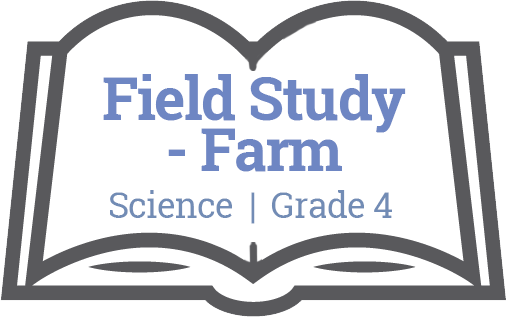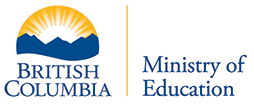
Unit Plan: Field Study – Farm
Science / Grade 4

Big Ideas
Science
- All living things sense and respond to their environment.
Essential Questions
Students will keep considering…
- How do living things sense and respond to their environment?
- What does using my senses in nature look, sound, feel, taste and smell like?
- How do my senses compare to the senses of other plants and animals?
- How is sensing and responding related to interdependence within ecosystems?
Evaluative Criteria
N/A
Monitoring Progress
Teacher will monitor progress:
Teachers can monitor progress through ongoing formative assessment including but not limited to:
- Class discussion
- Group and pair discussions
Resources
AUDIO
TEXTS
- Chicken Anatomy 101
- Farm Animal Info Sheets
- Farm Facts
- Laminated Farm Animal Senses Info Cards
VIDEO
Reflection
How will teachers and their students reflect on and evaluate the completed project?
Teacher Reflection
- What aspects of the field study went well?
- What did students struggle with?
- What did you struggle with?
- What would you add/revise the next time you taught this field study?
- What connections can I make back to my school learning community?e.g. Create a plan of action to address a chosen (environmental) problem or issue (SS 4).
Downloads
Stage 2 – Evidence
Authentic Performance Tasks
AUTHENTIC PERFORMANCE TASK: Assessing for Understanding
Students will be able to demonstrate their understanding by:
Assessing prior knowledge:
Walk and Talk to the farm:
1. What is a farm? What role does a farm have? What are domestic versus wild animals?
2. What are some questions you have about farms and the animals that live there?
Final group circle question options:
1. What is a farm?
2. How did I notice (observe) the senses of the farm animals?
3. What did I notice (observe) in this field study?
4. How do goats, pigs and chickens sense and respond to their environment?
5. What are the basic needs of these animals?
6. What questions do I still have about these animals that live in the farm?
GRASPS
What is a GRASPS task?
> No GRASPS avaiable for this Unit Plan
Other Evidence
OTHER EVIDENCE: Assessing for Knowledge and Skills
Students will show they have acquired Stage 1 knowledge and skills by:
- making observations about the farm animals and describing unique features about each animals and describing what role those features may have.
- exploring the farm in a sensory way (smell, hearing, sight)
- demonstrating proper safety tips and behaviour while visiting the animals
- learning information about farm animals from farm animal cards
- pair-sharing observations, questions, reminds me…

The following resources are made available through the British Columbia Ministry of Education. For more information, please visit BC’s New Curriculum.
Big Ideas
The Big Ideas consist of generalizations and principles and the key concepts important in an area of learning. The Big Ideas represent what students will understand at the completion of the curriculum for their grade. They are intended to endure beyond a single grade and contribute to future understanding.
Core Competencies
 Communications Competency
Communications Competency
The set of abilities that students use to impart and exchange information, experiences and ideas, to explore the world around them, and to understand and effectively engage in the use of digital media
 Thinking Competency
Thinking Competency
The knowledge, skills and processes we associate with intellectual development
 Social Competency
Social Competency
The set of abilities that relate to students’ identity in the world, both as individuals and as members of their community and society
Curricular Competencies & Content
Curricular Competencies are the skills, strategies, and processes that students develop over time. They reflect the “Do” in the Know-Do-Understand model of curriculum. The Curricular Competencies are built on the thinking, communicating, and personal and social competencies relevant to disciplines that make up an area of learning.
Additional Resources
First People's Principles of Learning
To read more about First People’s Principles of Learning, please click here.
For classroom resources, please visit the First Nations Education Steering Committee.
